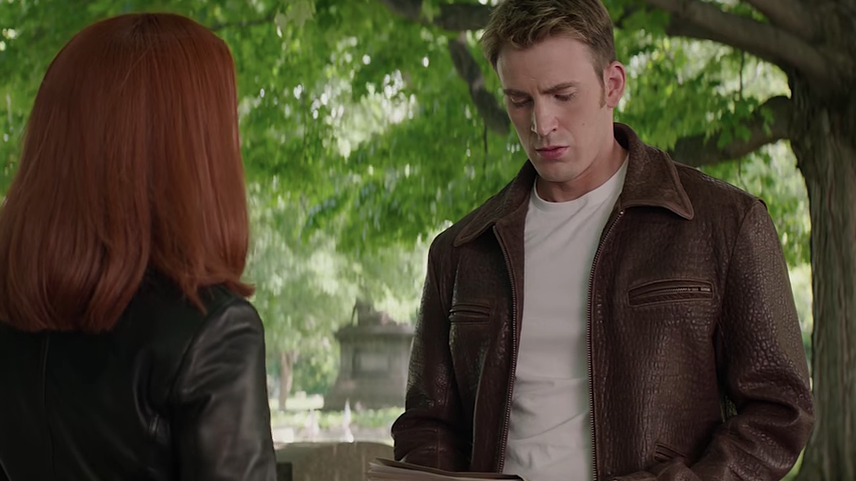I was reading this essay by Joanna Russ, “The Wearing Out of Genre Materials” – it’s a quick read, but I’m not sure it’s freely available anywhere – I got it on Jstore. Yay working in academia!
Anyway, the gist of the essay is:
- Stories feed an emotional need. They fulfill a wish, somehow. The wish can be, “I wish for the emotional catharsis of being scared out of my mind” or “I wish I knew what it was like to fly with space dolphins in a purple nebula.”
- Innovative writers come up with new ways to fill those needs. These early stories are almost always pretty dang bad, but gain popularity and notoriety for their novelty.
- Once it’s no longer a novelty, the wish-fulfillment alone isn’t enough, so second-string adapters dig into the mechanics of it, fleshing it out to be more “realistic.” “But WHY did that scare you?” and “But HOW did those dolphins get there and why is the nebula purple?” There is fresh delight in seeing the emotional core explored and made real.
- Once THAT has been done enough, either the tropes are made into clichés (dolphins always swim in purple nebulae) or the tropes are used not for themselves, but as a means of constructing unrelated stories. (THIS story about dolphins in a purple nebula is really about man’s inhumanity to man.)
So, for example, she gives three stories about A Robot Turns on Its Creator. The first, by Ambrose Bierce, from the 1800s, has just that – a robot is made, it turns on its creator, the end. Nothing more is needed – this was new enough to be exciting all on its own. Stage two: an Asimov story from the 40s. Asimov explores why the robot is rebelling, how it can rebel, what technological level in society is required to have a robot with self-awareness in the first place. We are re-captivated. Stage Three: a story (recent to Russ’s writing) by Aldis – there’s a robot, he’s rebelling, but we don’t care, the tropes are taken as understood by the audience, this is really about What it Means to be a Man with a robot rebelling as the background.
So – it seems like the low-hanging fruit of writing is to make something New.
(Ha ha. I’ll get right on that.)
I recently read “Station Eleven” a Post-Apocalyptic story. It’s easy to see how it fits into a similar hierarchy.
Stage one: all the glorious empty world porn, things like “I am Legend” – half the book is just describing a world without billions of humans.
Stage two: okay yeah but how would the world end that way let’s figure out how we got here and how we’re living, still – here we get all those thriller novels like “Andromeda Strain”
Stage three: Now that we’ve all read dozens of post-apocolypses, seen every form of disease – man made or alien – every form of zombie, every type of mysterious person-removal – this story takes it all as given and uses it as a backdrop to talk about an artist’s relationship with art. (I mean, really, that’s what it’s about.)
So – solid theory. You can trace the stages on almost any trope. But here’s a plot twist – Russ used “Vampire stories” as one of her examples of a story solidified into permanent cliché, no longer fertile ground. A decade before Ann Rice, before Charlainne Harris – before a whole new explosion of vampire mythos including role playing games, comics, and movies. Funny, right?
Russ’s best-known short story was itself a reinvention of a trope – the Planet of the Amazons seen not as a wish-fulfillment of male desire, but from the point of view of the Amazons themselves. How many reinventions and reversals have we seen since?
See, I propose a fourth stage – the stage of splintering and re-invention. When a trope has been done to death, when we think we’ve seen the last Vampire Romance or the last Zombie Apocalypse, someone, somewhere has this crazy idea to turn the trope on its side and make it new again.
I grew up obsessed with science fiction at a time (the 1980s) when many were predicting its demise. I don’t know, maybe the prediction of the death of science fiction started shortly after science fiction, but it seemed oppressively omnipresent when I was a kid.
I’m trying to find this article I read recently that was from the 1980s and pointed out that every story in a recent Asimov’s had been about aging or by old people. The genre had two confounding diseases – the success of its early pioneers left little room for new voices, and the pessimism of the 80s turned more gazes toward the past than the future. Fantasy was taking off, fat dragon-bedecked spines shoving my beloved rocketships off the shelves.
And I stood there, wanting more than anything to be a Science Fiction Writer, unsure if I could write about anything but nuclear apocolypses. I felt hopeless and Born Too Late.
But we hadn’t even had Next Gen yet! And Deep Space Nine! TED CHAING. Solar punk. Bio punk. Interactive Fiction as more than a novelty. The huge surge of YA science fiction. The increasing stream of literary science fiction.
I guess what I’m saying is: we all know tropes wear out. But we forget, sometimes, that they don’t stay that way.


